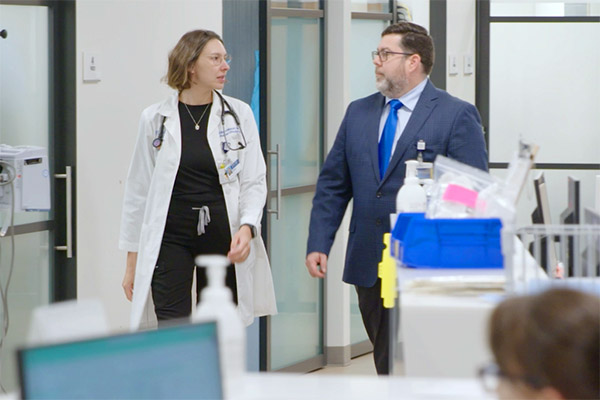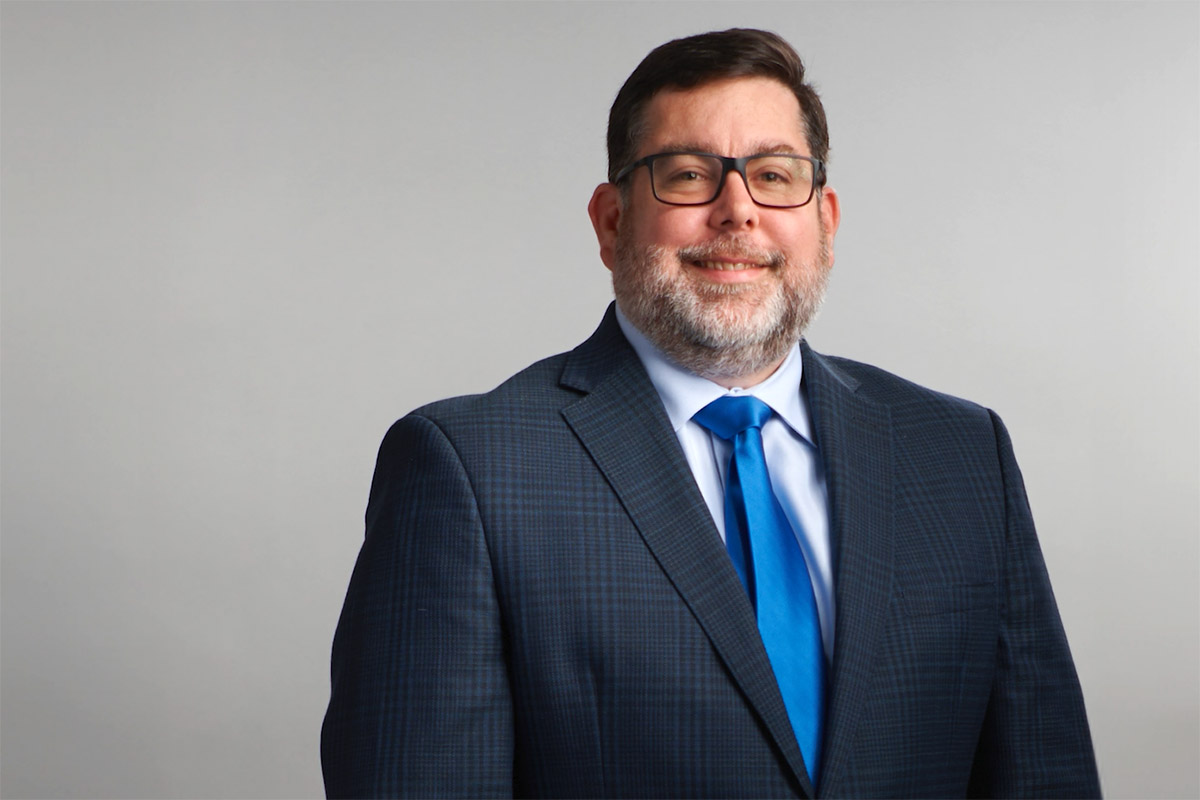To give hope to patients and to give them medications that progress to FDA approval and then become the standard of care is really what inspires hope in me.
John Bourgeois, DNP, MMHC, RN, OCN, CCRP, NEA-BC, knew in his mid-teens what he wanted to do with his life after a family member was diagnosed with cancer. “My mother was a nurse,” he says, “and cancer impacted my life at about 15, 16 years old. Then, following in my mother’s footsteps and from the impact that cancer had on my life, I wanted to become an oncology nurse. From that time on, that is all I’ve ever wanted to be.”
Today, Bourgeois is an oncology nurse as well as assistant director of clinical operations at Winship Cancer Institute of Emory University. He is the nursing leader for several outpatient units, including the Ambulatory Infusion Center, the Phase I Clinical Trials Unit and the Rollins Immediate Care Center.
In his role as a nurse leader, Bourgeois sees new drugs come to the Phase I Clinical Trials Unit when very little is known about them. Phase I clinical trials are research studies that test how well new medical approaches work in people and are usually the initial testing of a new treatment.

Bourgeois with nurse practitioner Elise Hitron, MSN, FNP-C, in the Phase I Clinical Trials Unit.
Bourgeois sees Winship’s phase I trials as an important example of putting patients first. “It’s one thing to have phase II and phase III trials,” he says. “Other hospitals have those. But here at Winship, I think our commitment to early drug development clinical trials separates us from other entities in the state.”
What’s especially inspiring for Bourgeois is seeing experimental drugs move forward to become new standard-of-care therapies. “To give hope to patients,” he says, “and to give them medications that progress to FDA approval and then become the standard of care is really what inspires hope in me.”
He offers an example. “There was a new lung cancer drug first given in the Phase I Clinical Trials Unit, recently approved by the FDA and is now administered in our Ambulatory Infusion Center. The speed at which we were able to deliver it in our Ambulatory Infusion Center is a testament to our innovative and collaborative approach.”
Bourgeois credits the physician researchers, research teams, nurses and operations staff for coming together to help operationalize these treatments so they can be delivered to patients. “It takes so many people to offer these medications here,” he says. “And keeping our patients and how can we serve them better as our true north is a testament to our culture.”
In fact, Bourgeois says it is Winship’s culture that most inspires him about working here. Across the many different units and disciplines and specialties he works with, he says everyone is focused on our patients and how to serve them better, offer new treatments and improve their quality of care.
That is exactly what keeps Bourgeois committed to the work. “What gets me out of bed to come to work is caring for patients,” he says. “And to be on the forefront of new therapies and see them progress to become the new standard of treatment is what inspires me every day. To care for our patients, to offer that hope is what inspires me to do what I do.”
Winship is where science becomes hope.
Who have you observed inspiring hope in our patients, our team or our community? We would love to hear from you. If you have a story to share about someone inspiring hope at Winship, reach out to us using this form.

